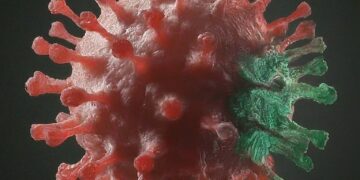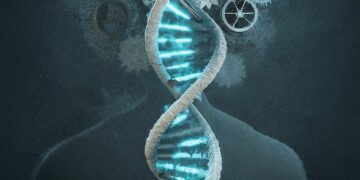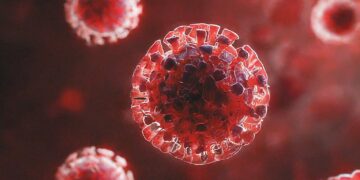Introduction
Inherited diseases, also known as genetic disorders, are conditions that occur due to abnormalities in a person’s DNA. These conditions can be passed down from one generation to the next and can have a significant impact on an individual’s health and well-being. In this article, we’ll delve into the causes, examples, and inheritance patterns of inherited diseases, focusing particularly on sickle cell disease.
Causes of Inherited Diseases
Inherited diseases can stem from various genetic mutations and abnormalities. These mutations might affect single genes, multiple genes, or entire chromosomes. Recessive mutations necessitate two copies of the abnormal gene to cause a hereditary disease, whereas dominant mutations only require one copy of the abnormal gene to trigger the disorder.
Examples of Inherited Diseases
There’s a wide array of inherited diseases, each presenting its unique symptoms, complications, and inheritance patterns. Some common examples include:
- Sickle Cell Disease: This is a hereditary disorder characterized by abnormal hemoglobin molecules in the blood. It’s inherited in an autosomal recessive pattern, meaning both parents must pass on the abnormal gene for a child to develop the disease.
- Cystic Fibrosis: A genetic disorder affecting the lungs, pancreas, and other organs, caused by mutations in the CFTR gene, inherited in an autosomal recessive manner.
- Huntington’s Disease: A degenerative neurological condition caused by a mutation in the HTT gene, inherited in an autosomal dominant pattern.
- Duchenne Muscular Dystrophy: This genetic disorder is characterized by progressive muscle weakness and degeneration, inherited in an X-linked recessive fashion and caused by mutations in the DMD gene.
Inheritance Patterns of Inherited Diseases
Understanding the inheritance patterns of inherited diseases is crucial for predicting the likelihood of passing on these disorders to future generations. The most common inheritance patterns include:
- Autosomal Dominant: Only one copy of the abnormal gene is needed for the disease to manifest. If one parent carries the abnormal gene, there’s a 50% chance that each offspring will inherit the disorder.
- Autosomal Recessive: Two copies of the abnormal gene are required for the disease to occur. If both parents carry one copy of the abnormal gene, there’s a 25% chance that each offspring will inherit the disorder.
- X-Linked Recessive: This involves mutations in genes located on the X chromosome. Males are more commonly affected because they have only one X chromosome. If a female carries one copy of the abnormal gene, she’s considered a carrier but may not exhibit symptoms.
Frequently Asked Questions (FAQs)
Q: What are inherited diseases?
A: Inherited diseases, also known as genetic disorders, are conditions caused by abnormalities in an individual’s DNA. These disorders can be passed down from one generation to the next and may affect various aspects of health and development.
Q: What causes inherited diseases?
A: Inherited diseases can arise from mutations or abnormalities in an individual’s genes or chromosomes. These mutations may be inherited from one or both parents or may occur spontaneously during the formation of reproductive cells or early development.
Q: How do inherited diseases differ from acquired diseases?
A: Inherited diseases are passed down from one generation to the next through genetic inheritance, whereas acquired diseases are typically caused by environmental factors, lifestyle choices, infections, or other external influences.
Q: What are some examples of inherited diseases?
A: Examples of inherited diseases include sickle cell disease, cystic fibrosis, Huntington’s disease, Duchenne muscular dystrophy, hemophilia, and Down syndrome, among others.
Q: How are inherited diseases diagnosed?
A: Inherited diseases are often diagnosed through genetic testing, which involves analyzing a person’s DNA for mutations or abnormalities associated with specific disorders. Other diagnostic methods may include family history assessment, physical examination, and laboratory tests.
Q: Can inherited diseases be treated or cured?
A: The treatment and management of inherited diseases vary depending on the specific disorder and its severity. While some inherited diseases have no cure and require lifelong management of symptoms, others may be treated with medications, lifestyle modifications, gene therapy, or other interventions aimed at improving quality of life.
Q: Is genetic counseling recommended for individuals with a family history of inherited diseases?
A: Yes, genetic counseling is often recommended for individuals with a family history of inherited diseases or those who are concerned about their risk of passing on a genetic disorder to their children. Genetic counselors can provide information, support, and guidance regarding genetic testing, inheritance patterns, reproductive options, and family planning.
Q: Can inherited diseases be prevented?
A: In some cases, inherited diseases may be prevented or minimized through strategies such as genetic screening, prenatal testing, preimplantation genetic diagnosis (PGD), and lifestyle modifications. However, not all inherited diseases can be prevented, and early detection and appropriate management are essential for optimizing outcomes.
Q: What is the role of research in understanding and treating inherited diseases?
A: Research plays a crucial role in advancing our understanding of inherited diseases, identifying new genetic mutations, developing diagnostic tools, and exploring potential treatments and therapies. Ongoing research efforts hold promise for improving diagnosis, treatment, and prevention strategies for inherited diseases in the future.
Q: Where can individuals find support and resources for inherited diseases?
A: There are many organizations, support groups, and online resources available to individuals and families affected by inherited diseases. These resources can provide information, advocacy, peer support, and access to specialized healthcare services. Additionally, healthcare providers, genetic counselors, and patient advocacy organizations can offer guidance and assistance in navigating the challenges associated with inherited diseases.
Conclusion
Inherited diseases are complex conditions with a wide range of causes and manifestations. By understanding the underlying genetic mechanisms and inheritance patterns, healthcare professionals can provide better care and support for individuals affected by these disorders. Through ongoing research and advancements in genetic technology, there is hope for improved diagnosis, treatment, and prevention of inherited diseases in the future.
As we continue to unravel the mysteries of human genetics, it is essential to raise awareness about inherited diseases and the importance of genetic testing and counseling. By empowering individuals and families with knowledge about their genetic predispositions, we can work towards a healthier and more informed future for generations to come.
How to Live a Healthy Life: Tips for Maintaining a Balanced Lifestyle







































